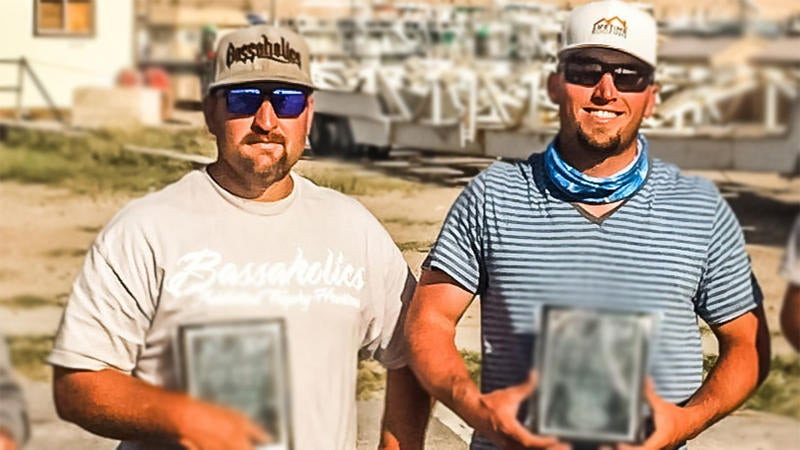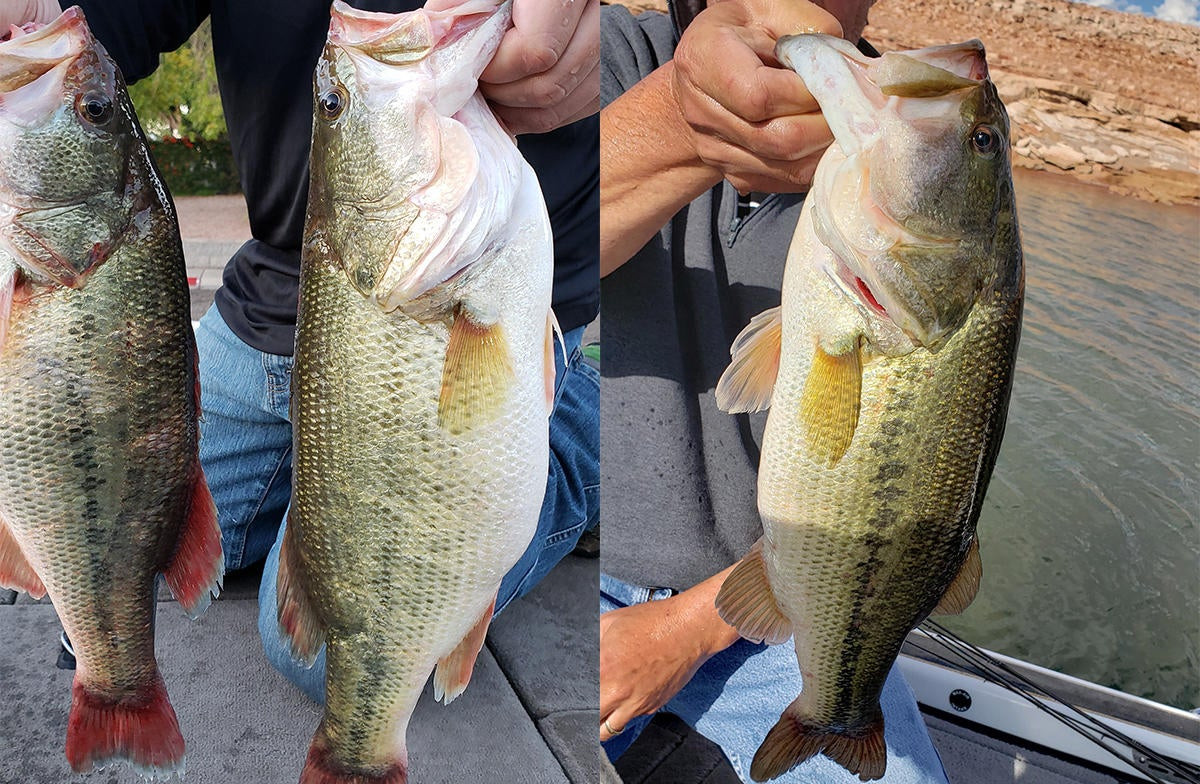Earlier this year, we reported on a cheating incident on Lake Powell (see the original story here). Two anglers, Robert Dennett and Kamron Wootton, brought fish to the scales the first day of a two day fishing tournament in October of 2018 that did not look like any of the bass weighed in that day and were in very poor shape. The fish were kept and The Utah Division of Wildlife Resources called out a biologist and the next day a plain-clothes officer was at the weigh-in.
“Some of the largemouth bass they’d turned in had little heads and fatter bodies, indicating a different diet than the fish at Lake Powell, which were more lean,” DWR Lt. Paul Washburn said. “The fish also had red fins, which indicated they had undergone some stress.”
They were questioned at the second day weigh-in by a DWR officer, and a lengthy investigation was launched. Wootton all but admitted they had done something wrong to the investigator, while Bennett smugly denied any wrongdoing. They were charged in March at the Kane County 6th District Court with bribery or threat to influence a contest, a third-degree felony; unlawful release of wildlife, a class A misdemeanor; and unlawful captivity of protected wildlife, a class B misdemeanor.
During the course of the investigation, Utah DWR officers were contacted by another tournament organization in Utah, the UBTT and their tournament director Allen Bratton. One of Bratton’s anglers had seen these two men at Quail Creek Reservoir the Thursday evening before the Powell event, doing “something suspicious in the shallows just before dark.”
As it turns out anglers must sign in and sign out when leaving that body of water, and the investigators found that Dennett’s boat had checked in to that body of water the Thursday afternoon before the two-day event on Powell, some 140 miles away.
Stable Isotope Analysis
That led investigators to work with the University of Utah to sample otoliths from fish at Quail Creek and fish from Lake Powell. According to Steve Luell, “Otoliths, or ear stones, are calcium carbonate structures found beneath the brain of most fish that aid in balance and hearing. Otoliths continuously accrete calcium carbonate throughout the fish’s life. The calcium carbonate that is used to form the otoliths comes from the water and the food eaten by the fish.”
Using these otoliths, scientists from the University were able to conduct stable isotope analysis to come up with stable isotope ratios for each body of water.
According to Wikipedia, isotope analysis is the identification of isotopic signature, the abundance of certain stable isotopes and chemical elements within organic and inorganic compounds. Isotopic analysis can be used to understand the flow of energy through a food web, to reconstruct past environmental and climatic conditions, to investigate human and animal diets in the past, for food authentication, and a variety of other physical, geological, paleontological and chemical processes. This type of science has been used in murder investigations with unknown victims to establish through hair samples the victims water district to narrow where the victim was from to aid in identification.
These ratio signatures are keenly unique, like 1 in a billion, making them extremely identifiable to each environment without any confusion. With the stable isotope ratios for both Powell and Quail Creek Reservoir, the scientists were then able to sample the otoliths from the fish brought to the scales by these two anglers the first day to confirm they were, in fact, from Quail Creek Reservoir and not from Powell.
Anglers Convicted and Sentenced
The two anglers plead guilty to the charges and have been sentenced. Each individual pled guilty to a 3rd degree felony charge of bribery/influencing a public contest, a class A Misdemeanor charge of releasing live aquatic wildlife and a class B Misdemeanor charge of unlawful captivity of live aquatic wildlife.
Their sentence includes the following:
- $2,500 each in restitution to the Help Stop Poaching Fund.
- $500 each for a plea in abeyance fee
- 48 hours community service
- 2 years court ordered no hunting
- DWR is administratively seeking 5 years no fishing
One of the undercover resource officers who worked on the case had this to say:
“This has been a really cool case. From the forensic science to the bass fishing community helping us figure out what body of water they brought the fish from. Beyond the fines, I hope that word travels through the fishing community that it is a serious crime to transport and release aquatic wildlife.
“Please share the results of this with all of your friends in the bass tournament world and please thank everyone you know that assisted from the Ultimate Bass Team Trail and the Lake Powell event tournament staff. While it’s rewarding we were able to stop these anglers through science, we know the other tournament organizers are still furious at how long these two likely had been robbing their trails.”
During the investigation, conservation officers also learned that the men had taken first, second or third place at eight other bass fishing tournaments earlier that year.
“Illegally moving and introducing fish into different water bodies can cause a lot of damage to that fishery,” Washburn said. “In this case, there were already largemouth bass at Lake Powell, but you can still run the risk of introducing disease and causing other issues whenever you move fish illegally. We continue to be grateful for those vigilant Utahns who report suspicious wildlife-related activity to our poaching hotline.”
Our hope is that more state DNR agencies will reach out to Paul Washburn and team at the Utah Division of Wildlife Resources to understand how scientists in their states can help crack down on fish transporting and unethical fishing behavior through stable isotope analysis.













